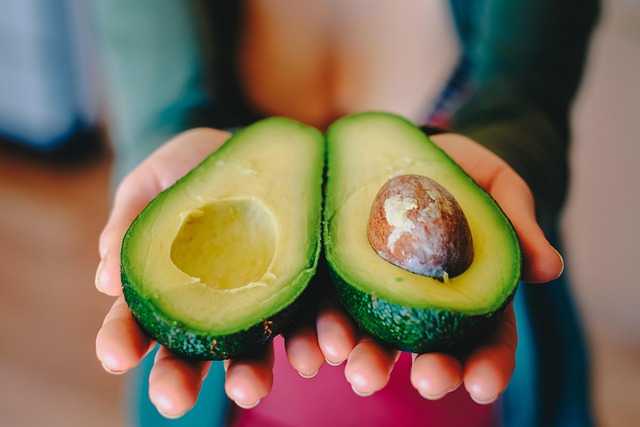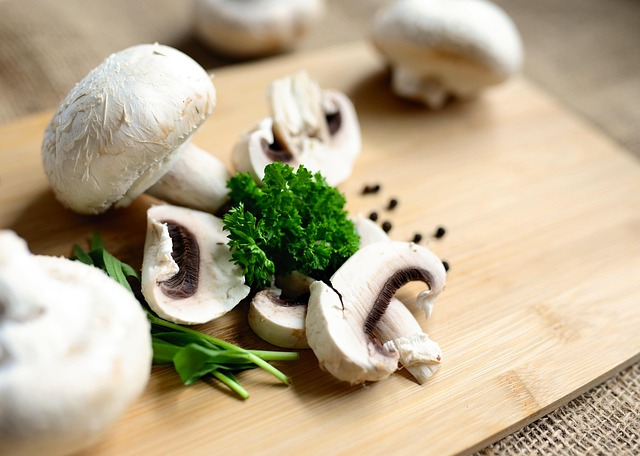Avocados and mushrooms are two of the most nutrient dense superfoods out there, with a plethora of health benefits. Avocados have healthy fats, fiber and vitamins, while functional mushrooms like lion’s mane, reishi and oyster mushrooms have brain boosting, immune supporting and anti-inflammatory properties. But not all superfoods are created equal when it comes to sustainability.
Avocados are delicious and versatile but come with a big environmental cost – deforestation, excessive water consumption and high carbon emissions from global transport. Meanwhile mushrooms are an eco friendly alternative, requiring minimal land, water and energy to grow.
So how can we have our avocados and mushrooms too? This guide will explore the sustainability of these superfoods and give you actionable tips on how to eat them responsibly.
Avocados vs Mushrooms: The Environmental Impact
Avocados: The Green Superfood with a Dark Side
Avocados are full of monounsaturated fats, fiber and antioxidants but large scale cultivation has led to deforestation, habitat destruction and water scarcity in key growing regions like Mexico, Chile and California.
- Water Consumption: An avocado tree requires 60 gallons of water per fruit, compared to a few gallons for most vegetables.
- Deforestation: In regions like Michoacán, Mexico, forests are being cleared illegally to make way for avocado orchards, harming wildlife.
- Carbon Footprint: Most avocados are transported internationally, requiring refrigerated shipping and increasing their carbon footprint.
Mushrooms: The Low Impact Superfood
Unlike avocados, mushrooms are one of the most sustainable crops on the planet. They grow on agricultural byproducts like sawdust or coffee grounds, require minimal water and produce zero waste when grown responsibly. Many functional mushrooms not only have unique health benefits but also thrive in eco friendly growing conditions, making them a powerhouse for both personal wellness and environmental sustainability.
- Minimal Land Use: Mushrooms can be grown vertically indoors, no deforestation risk.
- Low Water Footprint: Mushrooms require less than 2 gallons of water per pound, a fraction of most crops.
- Regenerative Potential: Some mushrooms like mycorrhizal fungi can even help restore soil health and break down pollutants.
Now let’s get to eating these superfoods responsibly.
How to Eat Avocados and Mushrooms Sustainably
Choose Ethical and Eco-Friendly Sourcing
For both avocados and mushrooms, sourcing from ethical and environmentally responsible producers is key. Look for certifications such as:
- Fair Trade Certified Avocados – Ensures farmers receive fair wages and adhere to sustainable farming methods.
- Organic Avocados – Grown without harmful pesticides and synthetic fertilizers.
- Locally Grown Mushrooms – Many small farms produce mushrooms with minimal environmental impact. Supporting them reduces transportation emissions.
- Regenerative Mushroom Farms – Some farms use compost-based growing techniques to restore soil health.
When possible, opt for locally grown, organic, or certified sustainable products to lessen your ecological footprint.
Reduce Food Waste: Use Every Part of the Avocado and Mushroom
Most people discard avocado pits and peels, but these can be repurposed in eco-friendly ways:
- Avocado Pits as Natural Dye: Boil the pit to create a peach or pink natural dye for fabrics.
- Avocado Peels for Composting: Rich in nutrients, they break down well in compost bins.
- Grow Your Own Avocado Tree: Sprouting an avocado seed can be a fun and sustainable way to reduce reliance on store-bought fruit.
If you’re looking for creative ways to make the most of your avocados, there are sustainable avocado recipes that maximize flavor and minimize waste. Similarly, mushrooms can be fully utilized:
- Use Mushroom Stems: Instead of discarding them, blend stems into soups or chop them for stir-fries.
- Compost Mushroom Scraps: Mushrooms decompose quickly and enrich soil with beneficial fungi.
- Grow Your Own Mushrooms: Many edible mushrooms, such as oyster or lion’s mane, can be cultivated at home using coffee grounds or straw.
By making the most of these superfoods, you reduce waste and maximize sustainability.
Swap Avocados for Mushrooms in Certain Dishes
While avocados are delicious, consuming them daily can contribute to environmental strain. Mushrooms offer a nutritious, sustainable alternative in many dishes:
- Oyster Mushrooms as a Creamy Spread: Their soft texture blends well into dips, offering a plant-based replacement for avocado toast.
- Lion’s Mane for a Brain-Boosting Substitute: This functional mushroom has a meaty texture and cognitive benefits, making it a great alternative in plant-based recipes.
- Mushroom-Based Guacamole: Blend cooked oyster mushrooms with lime, cilantro, and spices for a unique, eco-friendly take on guacamole.
Reducing avocado consumption while incorporating mushrooms can help balance sustainability with health benefits.
Support Sustainable Farming and Agroforestry
To protect forests and water resources, seek out farms that practice regenerative agriculture. These methods include:
- Agroforestry for Avocados: Integrating avocado trees with other crops to preserve biodiversity.
- Fungi-Based Soil Restoration: Certain mushrooms, such as mycorrhizal fungi, improve soil health and help trees absorb nutrients more efficiently.
Supporting these farming techniques can reduce the environmental impact of your favorite superfoods.
Balance Sustainability with Nutrition
Avocados and mushrooms both offer exceptional health benefits, but their environmental footprints differ significantly. By making informed choices—sourcing sustainably, reducing waste, substituting mushrooms in certain recipes, and supporting regenerative farming—you can enjoy both superfoods while being mindful of the planet.
Next time you reach for an avocado, consider incorporating mushrooms as well—they might just be the sustainable powerhouse your diet needs.





